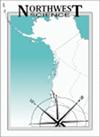How Long Can Dead Fish Tell Tales? Effects of Time, Tissue, Preservation, and Handling on Genotyping Success
IF 0.5
4区 环境科学与生态学
Q4 ECOLOGY
引用次数: 0
Abstract
Abstract Genetic analyses have become increasingly powerful, more readily available to biologists, and have made ever more degraded DNA potentially useful. Single nucleotide polymorphisms (SNP) are a relatively new “class” of markers that show promise for use with degraded or archived samples. We sequenced a panel of 298 SNPs from Chinook salmon (Oncorhynchus tshawytscha) tissue in three comparative studies to determine the effect of DNA quality at sampling, time in archive, and tissue type and preservation method on SNP genotyping success using logistic regression. The first study evaluated pristine DNA from live adults sampled at three hatcheries and archived up to 6 years. The second study compared samples from carcasses with varying levels degradation (i.e., condition) and archived up to 15 years. The third study compared heart and fin samples preserved either in ethanol or on paper from carcasses with varying levels of degradation and processed within 6 months. Genotyping success for fresh tissue did not decline over the 6-year archive period at two of the three hatcheries, suggesting sample handling techniques may be more influential than time in archive. Genotyping success of archived carcass samples depended more on carcass condition than time in archive. Heart tissue genotyped consistently more often than fin samples from all but poor condition carcasses. Based on these results, we make tissue-sampling recommendations for different intended purposes. We also provide simple, post-collection sample handling procedures that can increase genotyping success regardless of tissue or preservation method.死鱼能讲多久故事?时间、组织、保存和处理对基因分型成功的影响
摘要基因分析变得越来越强大,生物学家更容易获得,并使越来越多的降解DNA具有潜在的用途。单核苷酸多态性(SNP)是一类相对较新的标记物,有望用于降解或存档的样本。我们在三项比较研究中对来自奇努克鲑鱼(Oncorhynchus tshawytscha)组织的298个SNPs进行了测序,以确定采样时的DNA质量、存档时间、组织类型和保存方法对SNP基因分型成功率的影响。第一项研究评估了在三个孵化场采样并存档长达6年的活成虫的原始DNA。第二项研究比较了不同退化程度(即条件)的胴体样本,并存档长达15年。第三项研究比较了在乙醇或纸上保存的、在6个月内处理的不同降解程度的尸体的心脏和鳍样本。在三个孵化场中的两个孵化场,新鲜组织的基因分型成功率在6年的存档期内没有下降,这表明样本处理技术可能比存档时间更有影响力。存档胴体样本的基因分型成功与否更多地取决于胴体状况而非存档时间。心脏组织的基因分型频率始终高于除状况不佳的所有尸体的鳍样本。基于这些结果,我们为不同的预期目的提出了组织采样建议。我们还提供简单的采集后样本处理程序,无论组织或保存方法如何,都可以提高基因分型的成功率。
本文章由计算机程序翻译,如有差异,请以英文原文为准。
求助全文
约1分钟内获得全文
求助全文
来源期刊

Northwest Science
环境科学-生态学
CiteScore
1.30
自引率
0.00%
发文量
23
审稿时长
>36 weeks
期刊介绍:
The pages of Northwest Science are open to original and fundamental research in the basic, applied, and social sciences. All submissions are refereed by at least two qualified peer reviewers. Papers are welcome from authors outside of the Pacific Northwest if the topic is suitable to our regional audience.
 求助内容:
求助内容: 应助结果提醒方式:
应助结果提醒方式:


